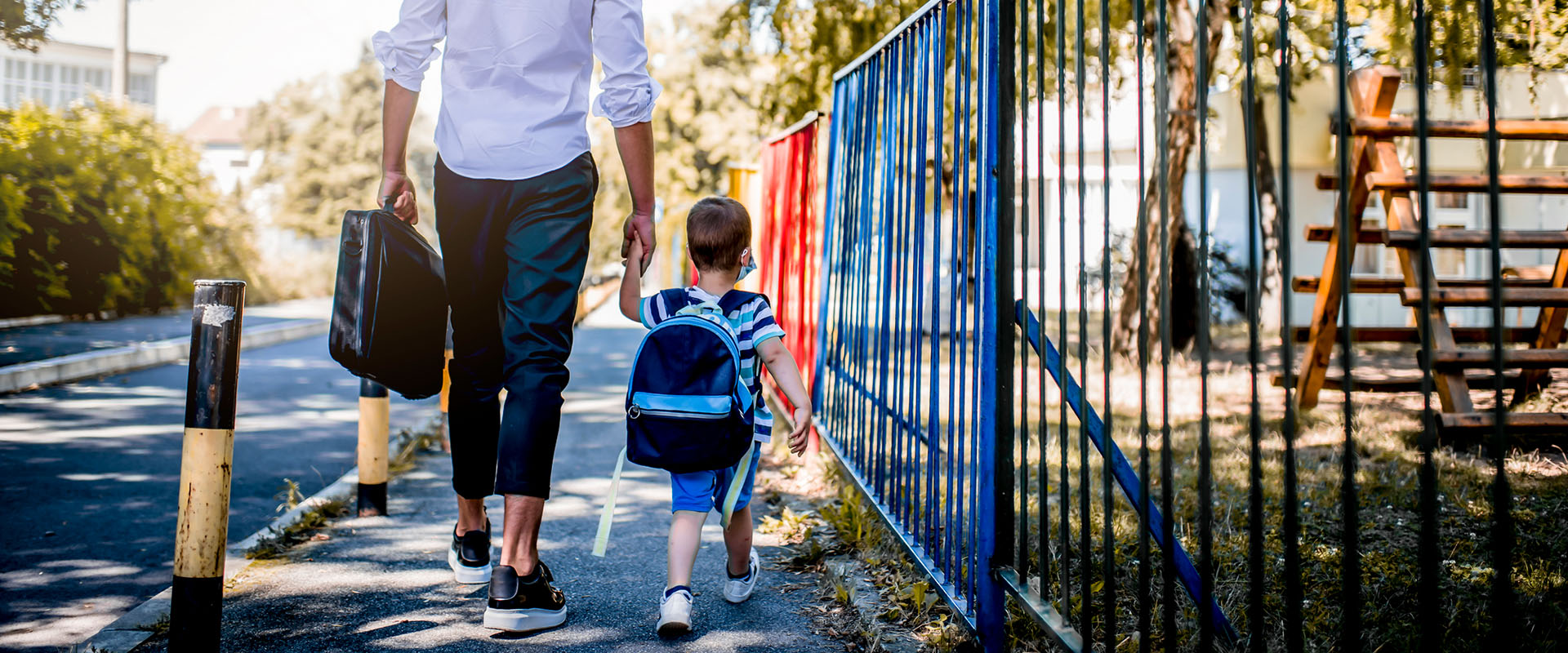Starting Nursery: Helping Fostered or Adopted Children Settle In

Starting nursery can be a daunting time for any child, but if the child is in care or has been adopted, there can be many additional layers of complexity. We take a look at some issues you, as a foster carer or adoptive parent, and your child might face, and share practical strategies to help you to enable your child to settle in and thrive.
Once a child enters the care system, they will usually live with a temporary foster family and some children will experience several changes of family during their time in foster care. It can be a difficult and unsettling time, making big changes like starting nursery particularly challenging.
There is a growing body of scientific evidence that a child’s earliest experiences have an immense and long-lasting impact on their development which is not fixed simply by being placed in a loving adoptive family.
The Impact of Early Experiences
According to Adoption UK, there are some common issues that may be relevant to consider when your child starts nursery:
Attachment: in ideal circumstances, a child will express their needs and have them consistently met by their primary caregiver. This, repeated many times a day, along with other nurturing behaviours (rocking, smiling etc.) will help to build a strong attachment, creating a secure foundation for the child. When a child’s care has been unpredictable or persistently neglectful, it is hard to establish a secure attachment and the child learns early that adults can’t be trusted and the world is not safe. Without a secure foundation, it’s harder for a child to explore their world, make new relationships and learn. A range of responses may develop in response to inconsistent and neglectful care, including passivity, anxiety, fear or excessive compliance.
Difficulties with self-regulation: a young baby learns how to manage their emotional state through the relationship with their primary caregiver. If a child is often hungry, tired, frightened or hurt and not comforted, this skill is not learnt. A child exposed to a chaotic environment develops a strong fight-flight-freeze response which is hard to overcome, and may be set off by triggers which are not obvious to the child or the adults around them.
Sensory integration difficulties: the brain function of assimilating and making sense of sensory information may not work as well for children who have been exposed to drugs or alcohol in the womb. This can make it harder for some children to sit still, manage noises and crowds, or deal with other sensory input, such as scratchy clothing.
Foetal Alcohol Spectrum Disorders (FASD): this is an umbrella term for a range of diagnoses caused by exposure to alcohol in the womb. Alcohol crosses the placenta in the bloodstream of a developing foetus, and can affect physical and brain development in a number of ways. Every year in the UK 7,000 babies are born with FASD. Many of these babies will find themselves among the 70,000 vulnerable children in our care system and making up the numbers in a statistic that claims 75% of looked-after children and up to 70% of adopted children have been exposed to alcohol in the womb.
As a foster carer or an adoptive parent, you will know your child’s background and needs. It’s important before they start nursery, to share what information you can so that practitioners can put a plan in place to support your child.
There are lots of ways you and the nursery can help your child settle in, and to feel happy and secure.
Settling in Strategies
No two looked-after or adopted children are exactly the same, but there are some common strategies which adoptive parents have told Adoption UK have improved their children’s experiences of nursery:
Key person: for a fostered or adopted child, this person can do more than monitor progress; they can act as an attachment figure and a ‘safe base’ for the child, supporting at transitions and checking-in throughout the day.
Attachments: children who have experienced broken attachments, losses and transitions may need extra support to build attachment relationships. If you think it’d help, ask your nursery whether it’s possible to have extra time at drop-off and pick-up, and give your child something from home that offers them comfort to keep with them while they’re at nursery, for example a teddy or blanket.
Think baby: the social and emotional age of a child who has experienced developmental trauma is often much lower than their chronological age. Difficulties may appear to be ‘extreme’ versions of normal toddler behaviour, but the root of that may be in loss and trauma. This will need to be communicated with the nursery and their approaches tailored accordingly.
Communications: you are better able to support your child to manage at nursery if you are fully informed of situations such as staff absence, changes to usual routines etc. Check whether the nursery have an app or can share regular home-nursery communications by text or email.
*****
Extra Resources:
- Settling Your Baby or Young Child into Nursery
- Adoption UK
Download the guide for parents and carers of children in education in England: Meeting the Needs of Adopted and Permanently Placed Children - The Fostering Network
Some foster carers in England and Wales may be able to benefit from free (government funded) childcare for 3 and 4 year olds. - Looking after some else’s child in the UK
Find out more about how you can get support and financial help if someone else’s child is living with you full time.





